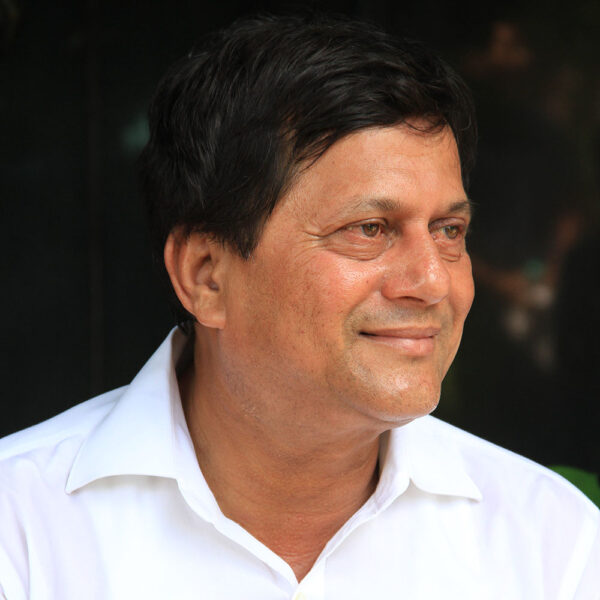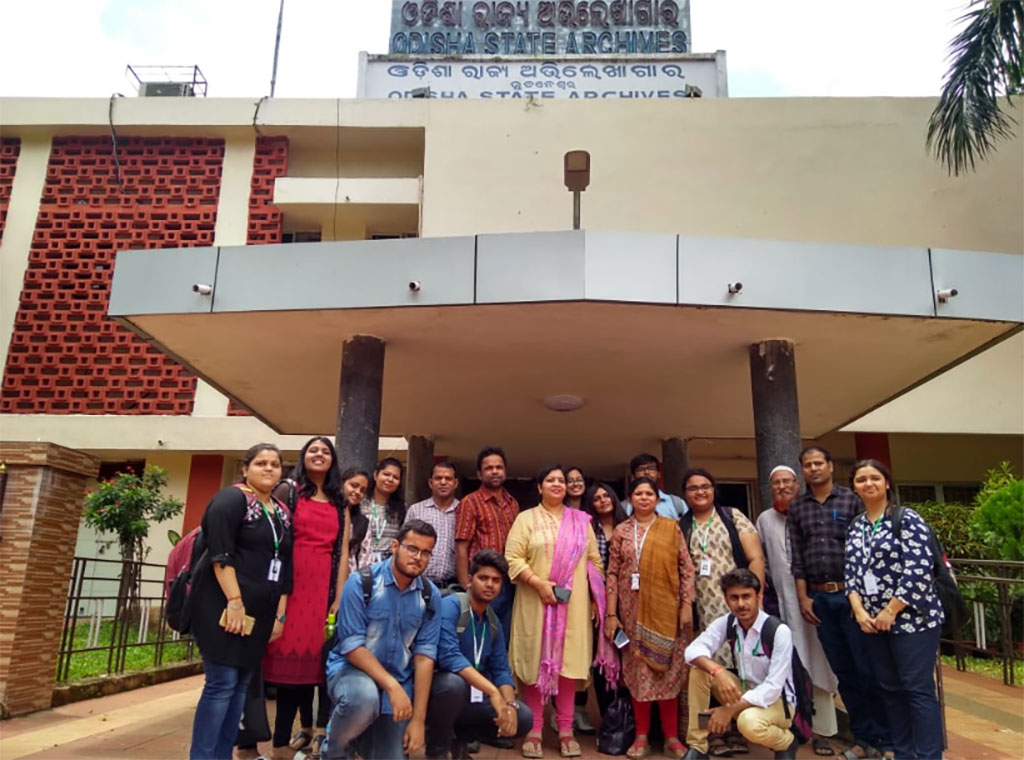Bhubaneswar: First semester students of Integrated Masters of Communication and Journalism of the School of Mass Communication visited Odisha State Archives as part of their field exposure to the history of Journalism on 18 August 2018.
First, students visited an exhibition on the Quit India Movement in the Odisha State Archives. The rare archival material on the happenings during the movement in 1942 and struggle for independence of India in Odisha was displayed in a hall.
Then, students were taken for a guided tour of the institute. They were shown the complete archival process of conservation of old documents, books, newspaper and priceless printed collections. They were shown the process of “tissue repairing technique” and digital scanning of old books. Students were shown other old forms of saving documents too.
“The life time of any paper is not more than 100 years but if conserved properly it can be kept properly for 500 years”, said Prasanta Kumar Mohakud, Reprographer in Charge, Odisha State Archives.
Acidity in a paper is the chief cause of its deterioration. To prevent old important documents from destruction, they are kept in acid proof boxes. Large camphor blocks are used for preventing pests and curbing smell. The archives has fireproof shelves to save the books and precious documents from inferno.
“This is the preservation of past for the future generations. We are the repository for all official as well as unofficial information about Odisha. We are trying to preserve the past and the present for the future. We regularly conduct collection drives to get books, old artifacts from freedom fighters, eminent personalities. In some cases, we have also paid for the rare documents,” said Suchismita Mantry, Superintendent of Odisha State Archives.
The Odisha State Archives boosts of its own studio and conference hall where every month a person of eminence gives a talk. The Odisha State Archives was established in Division in 1960. It houses the Secretariat records, District Records, Board of Revenue Records, News Paper & Gazettes, Private Collections, and Oral Archives.
Dr V R Raju, a historian and Ms Ruby Nanda, a faculty member of the School of Mass Communication visited with students to the “storehouse of history”.


